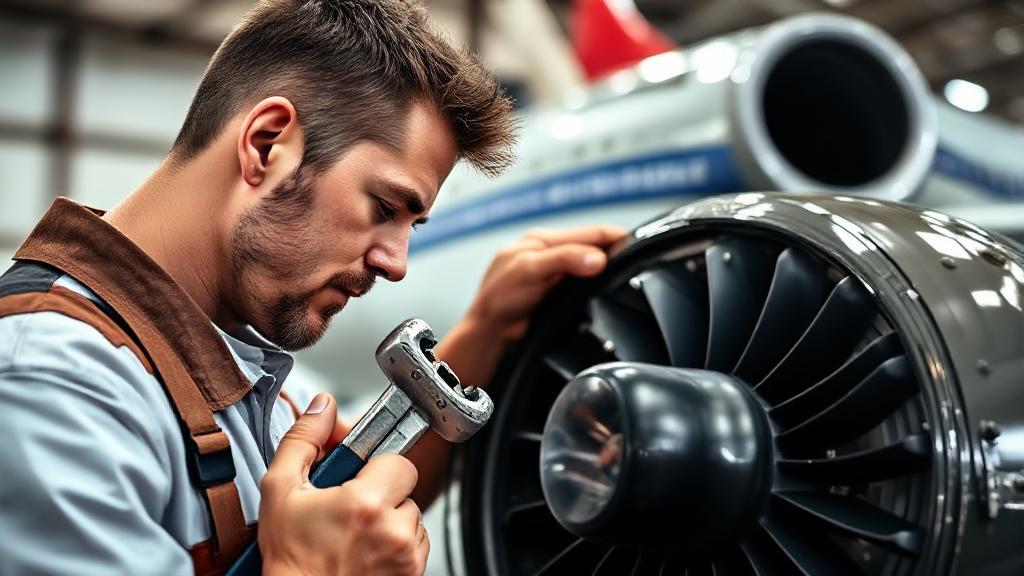Introduction
The aviation industry is a complex and dynamic field that requires skilled professionals to ensure its smooth operation. Airplane mechanics, also known as aircraft maintenance technicians (AMTs) or aviation maintenance technicians, play a crucial role in maintaining the safety and efficiency of aircraft. Their responsibilities include inspecting, maintaining, and repairing aircraft systems, including engines, landing gear, and electrical systems.
What Does an Airplane Mechanic Do?
Airplane mechanics are responsible for:
- Conducting routine maintenance checks
- Diagnosing mechanical and electrical problems
- Replacing defective parts
- Performing repairs on various aircraft systems
- Keeping detailed records of maintenance work
Average Salary Range
According to the U.S. Bureau of Labor Statistics, aircraft mechanics and technicians earn a median annual wage of $65,550 (as of 2021). However, salaries can vary significantly:
- Entry-level positions: $38,000 - $45,000
- Mid-career professionals: $55,000 - $75,000
- Senior technicians: $80,000 - $100,000+
Employer Type Salary Ranges
| Employer Type | Typical Salary Range |
|---|---|
| Major Airlines | $70,000 - $120,000 |
| Regional Airlines | $45,000 - $75,000 |
| Private Aviation | $50,000 - $90,000 |
| Government/Military | $55,000 - $85,000 |
Factors Influencing Salary
Experience and Certification
The more experience and certifications a mechanic holds, the higher their earning potential. Key certifications include:
- Airframe and Powerplant (A&P) License
- Inspection Authorization (IA)
- Avionics Certification
- Specific Aircraft Type Ratings
Location
Geographic location significantly impacts salary levels. States like California, Texas, and Florida often offer higher salaries due to the concentration of aviation companies. Major aviation hubs and cities with high costs of living typically offer better compensation, such as:
- New York City
- San Francisco
- Los Angeles
- Seattle
- Washington D.C.
Specialization
Mechanics who specialize in specific areas often command higher salaries:
- Avionics specialists
- Jet engine specialists
- Helicopter mechanics
- Composite material experts
Additional Benefits
Most employers offer comprehensive benefits packages including:
- Health insurance
- Retirement plans (401k)
- Paid time off
- Flight benefits
- Overtime opportunities
- Tool allowances
Career Growth and Opportunities
"Continuous education and certification in emerging technologies is key to advancing in the aviation maintenance field." - Aviation Industry Association
Advanced positions include:
- Lead Mechanic or Supervisor
- Shop Supervisor
- Maintenance Director
- Quality Control Inspector
- Technical Trainer
Future Trends
Emerging technologies are creating new opportunities:
Tips for Maximizing Earning Potential
- Obtain multiple certifications
- Gain experience with various aircraft types
- Consider relocating to high-paying markets
- Develop specialized skills
- Join professional organizations
- Stay current with new technologies
For those interested in pursuing this career, consider exploring educational programs and certifications through resources like the Aviation Institute of Maintenance, the National Aviation Academy, or the Federal Aviation Administration (FAA).
